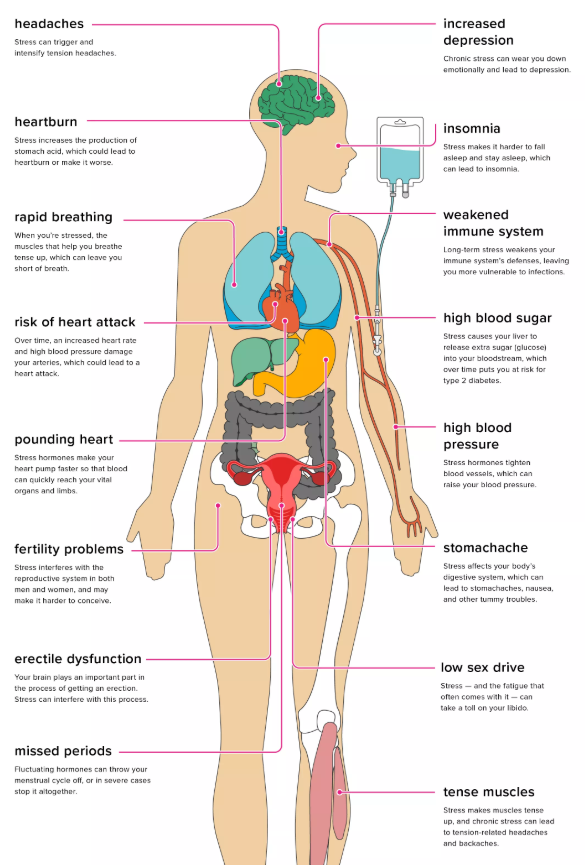Stress is a common part of most people's everyday lives. Whether through work, school, family, friends, finances, or health, we all feel pressure at times. But when you're raising children or caring for elderly or disabled family members, that stress can be constant.
Even when it feels like we're too busy with other priorities, it's important to pay attention to the ways stress impacts your body and mind. Chronic (meaning persistent or recurring) stress can cause severe physical and mental health issues!
Stress and Life Expectancy
The impacts of chronic, high stress levels can be severe. In fact, a study by the Finnish Institute for Health and Welfare showed that, for the average 30 year-old, heavy stress reduced life expectancy by an average of 2.8 years for men and 2.3 years for women.
Quiz
What is the best way to reduce stress quickly?
Stress and Life Expectancy
Stress can also impact your ability to provide care to the people in your life that rely on you. Watch this clip on caregiver burnout to find out more.
How Chronic Stress Effects the Body
If you feel overwhelmed & feel things like:
A headache
Tense muscles
Heartburn
Pounding heart
Stomachache
Not sleeping
The following actions can help you quickly:
Practicing Progressive Muscle Relaxation
Focusing on Breathing
Taking a Walk
Take Action
Stop and think about how you feel right now. What are the top three ways stress is impacting your body? Awareness is key to making a change.
Here's a video with some quick tips to manage stress.
Here's some music that's scientifically proven to reduce stress.
Your feedback matters to us.
This Byte helped me better understand the topic.

